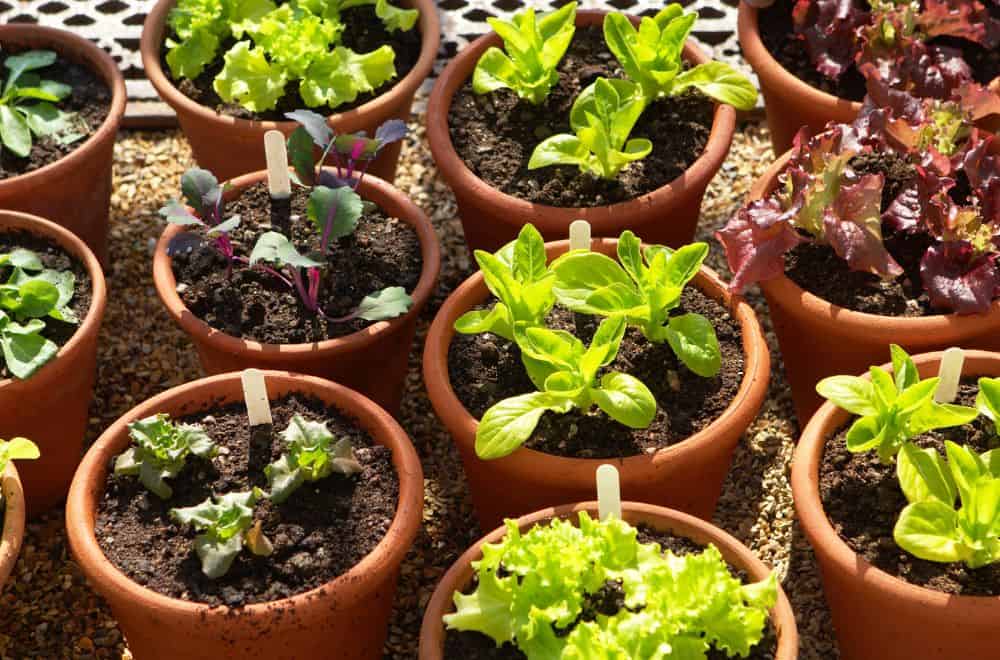Ants are common insects that infest potted plants in the house and outdoors, particularly flower planters and citrus pots. The reason is the nectar plants produce. Even though these insects are non-harmful to plants, the infestation will prevent them from thriving.
Therefore, it is vital to find out how to get rid of ants in your potted plants, primarily by using natural and non-violent methods. Remember that insecticides are highly effective but may harm your plants while killing ants.
Ant types in your potted plants |
||
| Bug type | Size | Color |
| Argentine ants | 0.10 to 0.13 inches
(2.6 – 3.2 mm) |
Dark brown |
| Odorous house ants | 0.06 to 0.12 inches
(1.5 – 3 mm) |
Brown to black |
| Pavement ants (workers) | 0.12 inches (3 mm) | Dark brown to black |
| Red imported fire ants (workers) | 0.06 to 0.25 inches
(1.5 – 6.35 mm) |
Reddish-brown and black |
| Southern fire ants | 0.07 to 0.25 inches
(1.8 – 6.35 mm) |
Black abdomen with amber head and thorax |
| Thief ants | 0.03 to 0.12 inches
(0.76 – 3 mm) |
Shiny yellow, bronze, or dark brown |
Ways to Get Rid of Ants in Your Potted Plants
You can opt for natural solutions or go to the shop and buy a highly efficient insecticide to get rid of ants. Both solutions are acceptable, but it is always better to avoid chemicals since they may harm your plant while killing ants.
Besides, ants are beneficial and non-harmful insects, so it is enough to only deter them from your plants without destroying them. Start with cleaning your home, remove spills in the kitchen, and keep food in airtight containers. Then, find a way to solve an ant infestation issue.
Natural solutions to Get Rid of Ants in Your Potted Plants
The best and healthiest way to eliminate ants from potted plants is by choosing natural repellents and homemade pesticides. Let’s check.
1. Orange peel
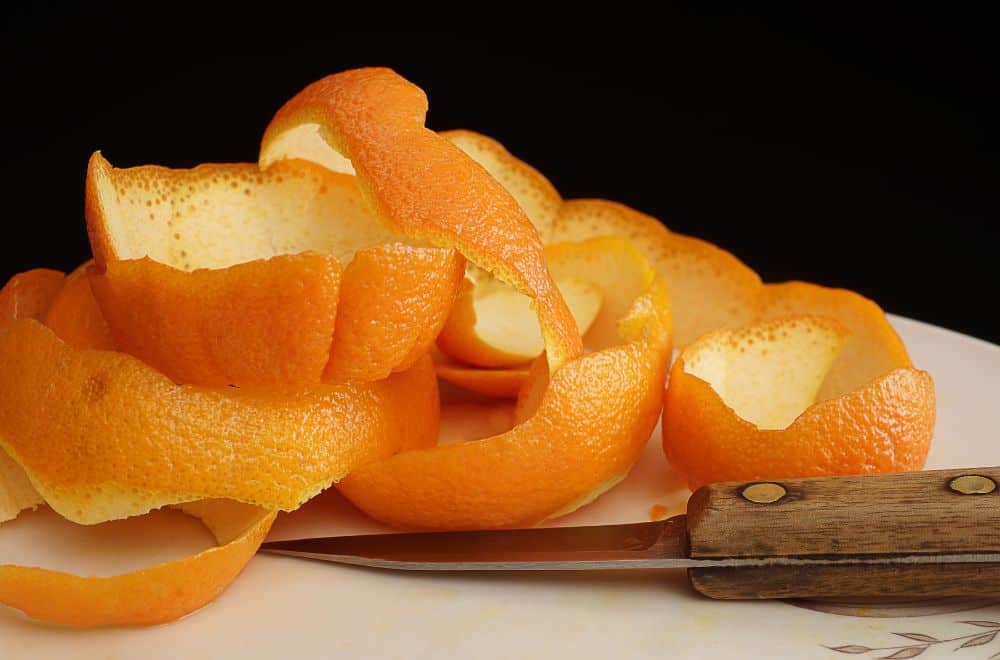
Buy six to seven oranges, remove their peel, and boil them in water for about 30 minutes. You can add drops of peppermint oil or dish soap to the water for an even better effect. Blend cooked peels until getting a paste and apply it over the soil in the pot.
2. Lemon

Squeeze lemon and make lemonade for yourself while using peels to eliminate ants. Put them in a cup of water and wait for a while before sprinkling it on plants.
Another option is to boil the peel of several lemons for approximately 15 to 20 minutes. Then, strain and pour the solution into a spraying bottle, and spray it over the pot top. You can also arrange a few lemon halves near planted pots and let a strong citrus scent deter ants.
Some plants, like succulents, azaleas, Japanese iris, and caladiums, are acidophilic and thrive in acidic conditions. In such a case, you can put a few lemon drops directly in the saucer.
If your plants prefer alkaline soil, like crocus or hyacinth, spraying the lemon solution on the pot outside is the only acceptable option. Lemon essential oil is an alternative in this case.
3. Essential oils
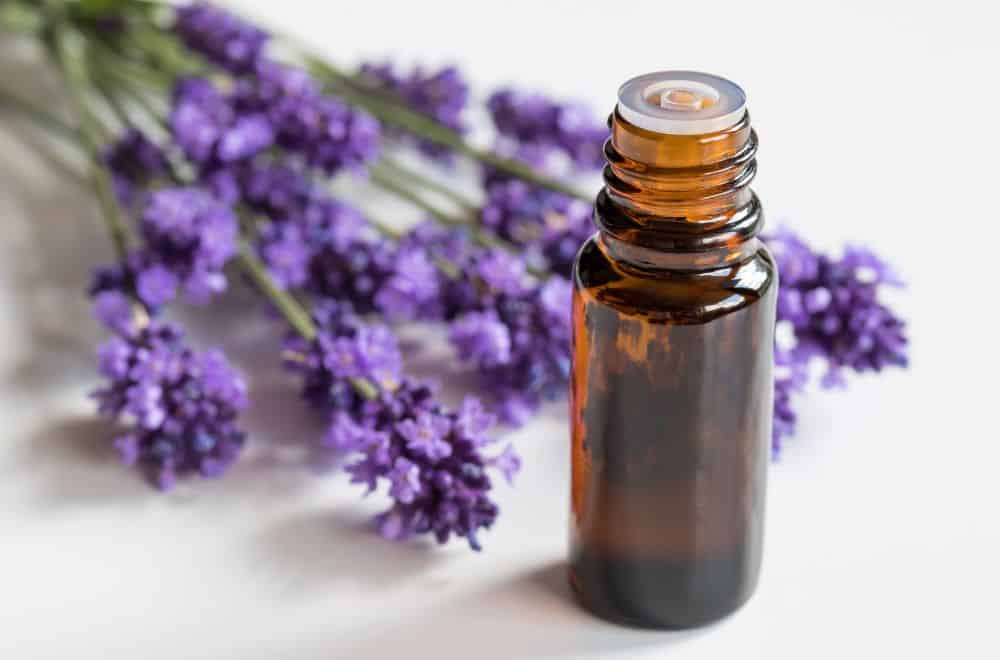
Using cinnamon oil, stick, or powder is one of the most efficient solutions for protecting potted plants from ant invasion. Put a few cinnamon sticks in the pot or sprinkle the powder around the plant base.
Another option is to drip cinnamon oil, which spreads the smell even better. Numerous other essential oils are excellent repellents, so apply them around pots to keep ants away. The most efficient are:
- Lemongrass oil
- Peppermint oil
- Lavender oil
- Citronella oil
- Mint oil
- Yarrow oil
- Thyme oil
Add a few drops of chosen oil in a spray bottle with water and spray a solution around planters and places where you see ants. These insects hate too-strong scents, making this method an excellent and healthy option.
You can also use cotton balls, drip essential oil on them, and place them around pots or along ant trails. Finally, you can put a few drops directly into pots or in saucers placed on window sills or the table. That way, you will keep your home fresh and ant-free.
Some experts also recommend a mix of the following ingredients:
- Five drops of peppermint oil
- Ten drops of eucalyptus oil
- Ten drops of tea tree oil
Drip them into a spray bottle of lukewarm water and spray on the pot or directly onto plant foliage.
4. Spices and homemade repellents
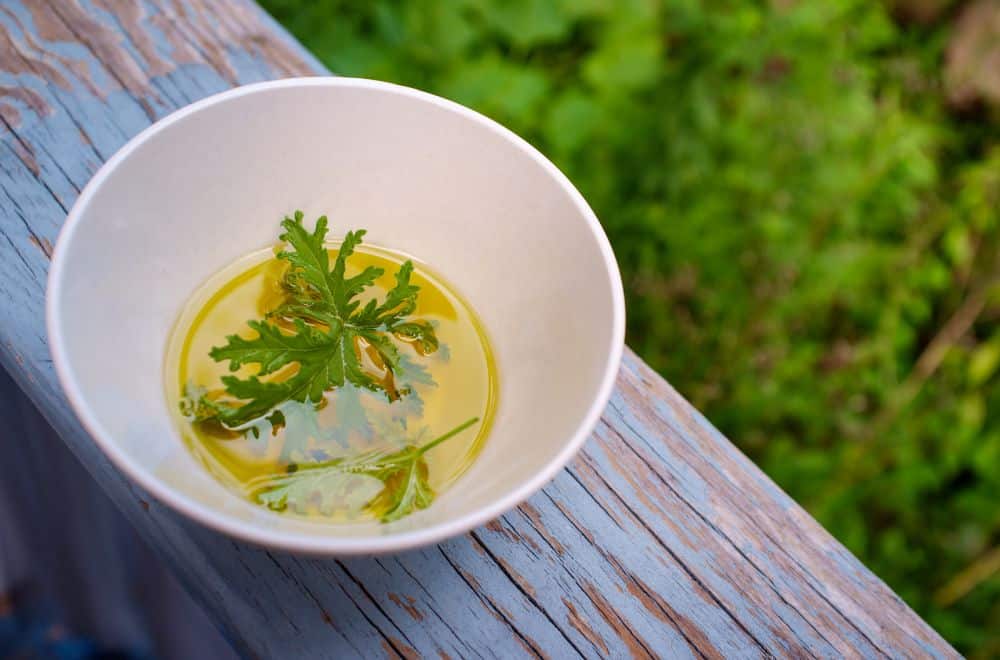
Ants can’t stand the scent of numerous spices, so you can successfully apply the following:
- Ground tea leaves
- Ground mint leaves
- Cloves
- Black pepper
- Cayenne pepper
- Garlic spray
- Chili powder
Sprinkling any of them around the soil will keep your potted plants safe from ants, regardless of species.
5. Plant Marigold
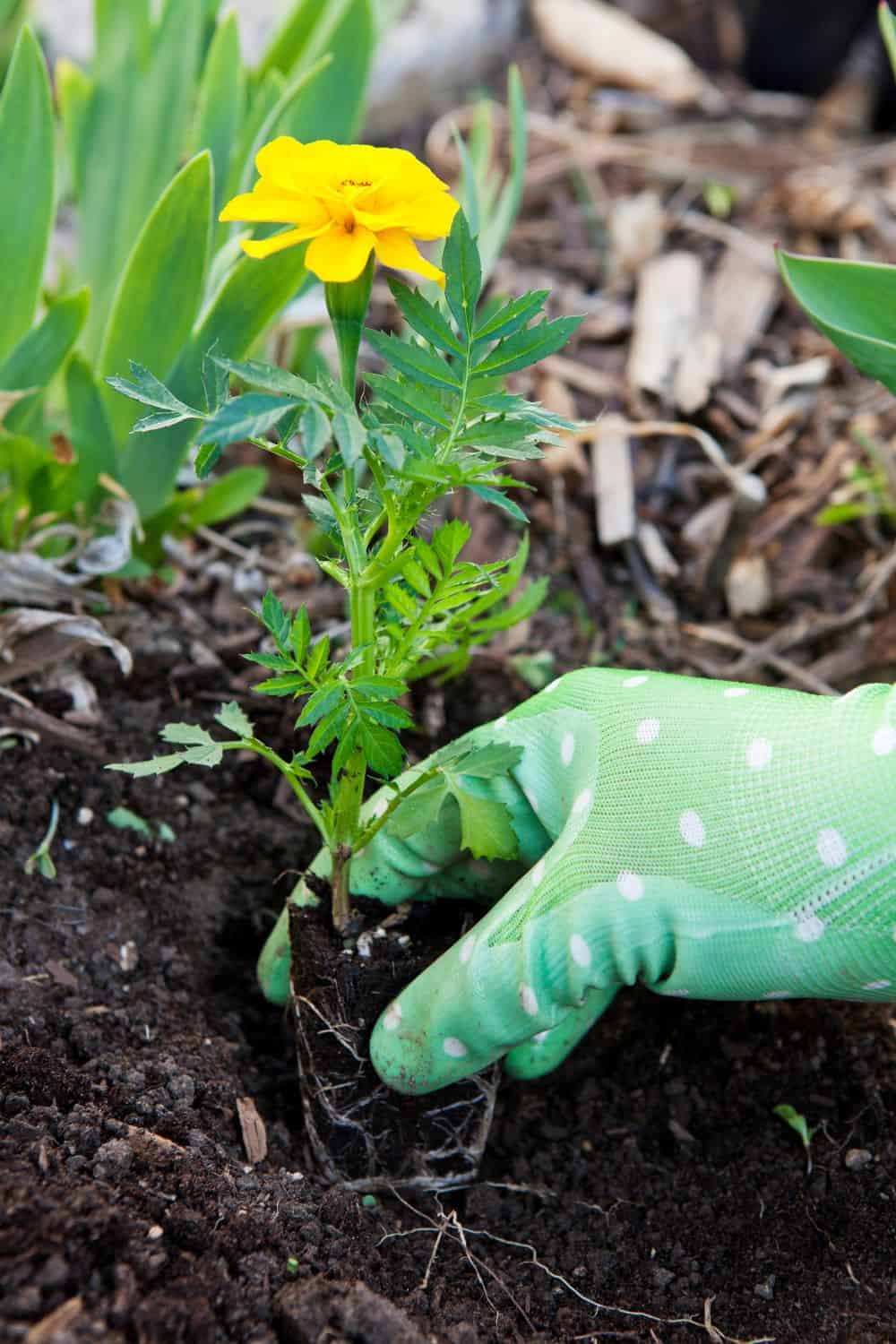
Ants can’t stand Marigold, so planting it in one of the pots will keep these insects away from all your plants. Another option is to plant this flower around the house when possible and prevent ants from entering.
On the other hand, Peonies, Desert willow, and Wild parsnip attract ants, so it is advisable to plant them far away from your home. Only that way can you prevent their entering inside and endangering your potted plants.
6. White vinegar
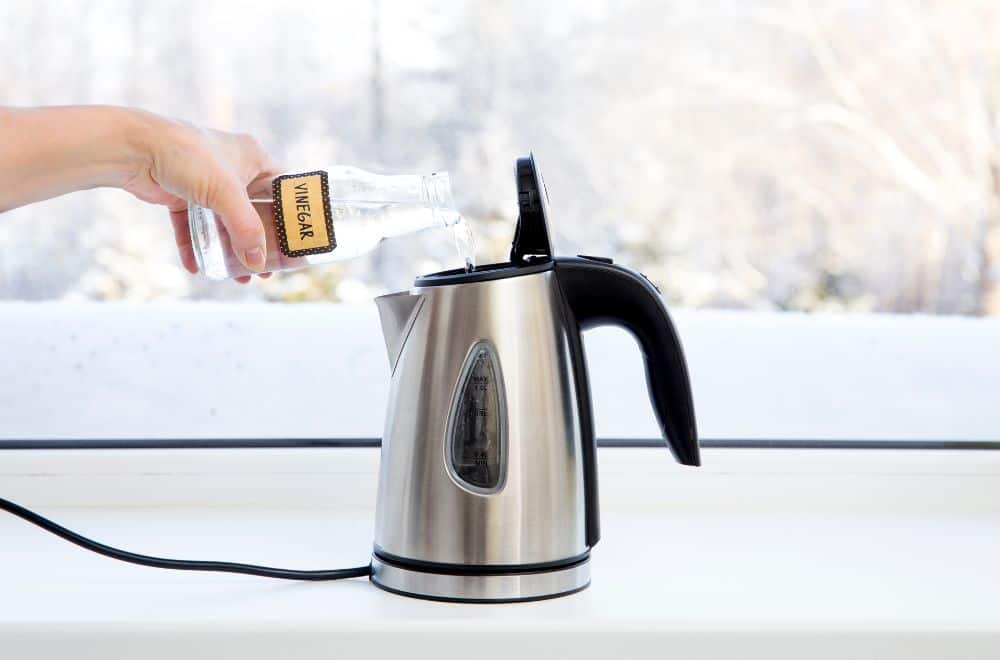
Make a spray by mixing equal parts of white vinegar and water. Spray a solution around pots or around the entrance to your home. Never apply it directly to the pot since some plants can’t survive high vinegar acidity.
7. Garlic spray
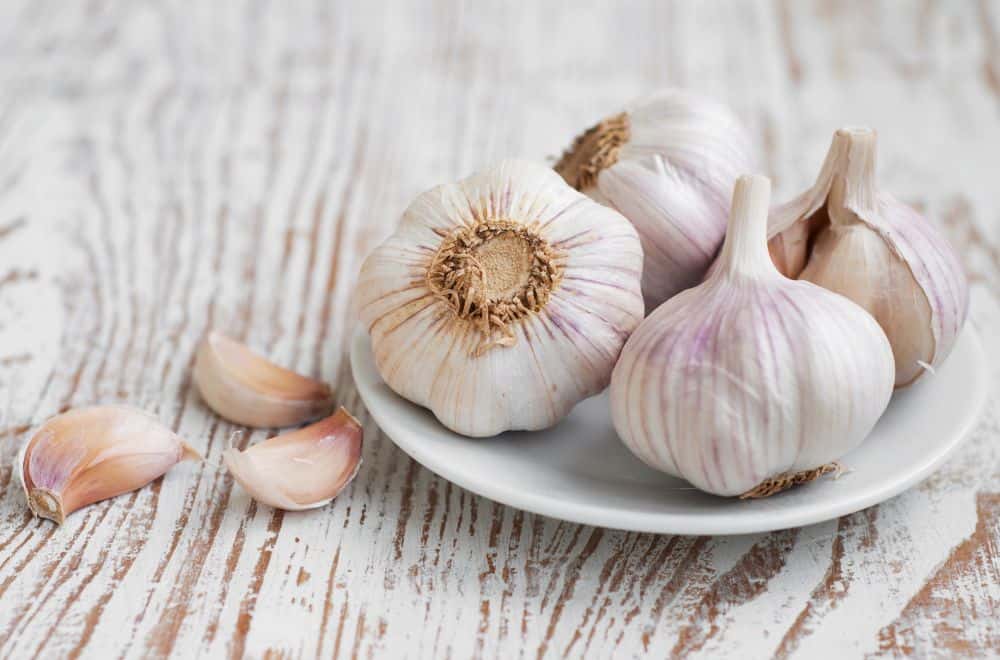
Mix garlic, oil, and water and pour the solution into a spray bottle. Since this method is harmless for your plants, you can apply the mixture directly to them. Garlic spray can’t kill ants immediately, so it is necessary to repeat the procedure for full effect.
8. Coffee grounds
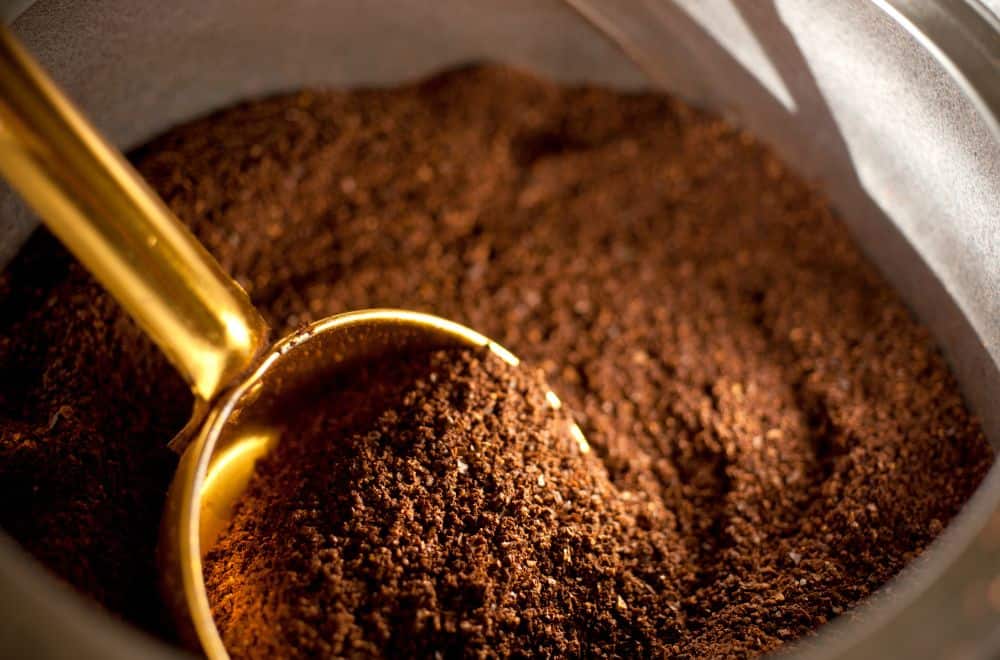
Never throw away coffee grounds after drinking your favorite coffee. Add it into the pot for a double effect since it adds nutrients to the soil and keeps ants away from your plants.
9. Soak the soil
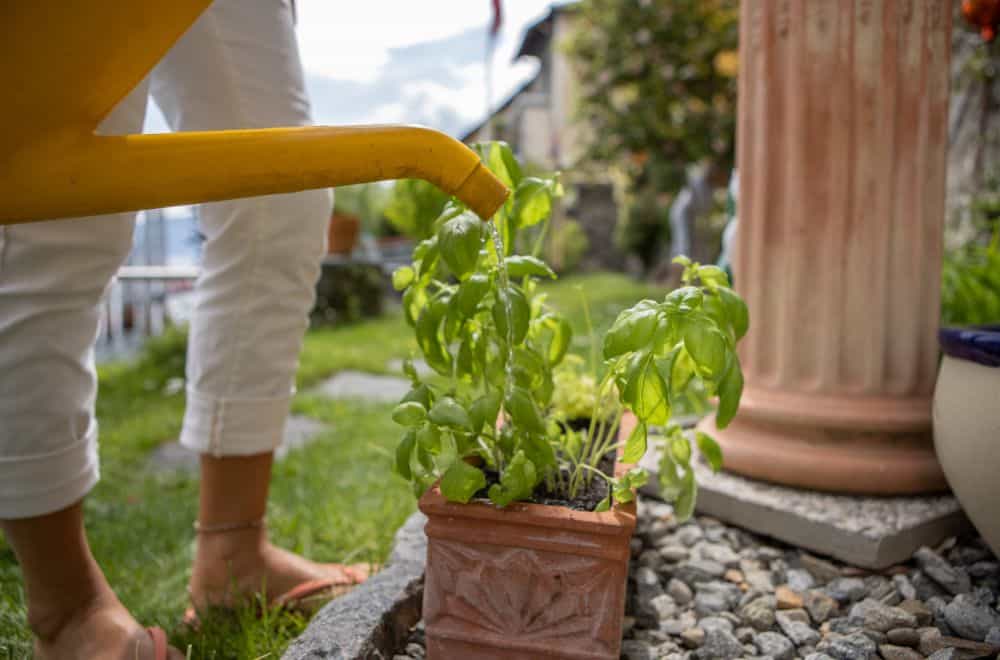
Soaking the soil in pots can help drown ants in water and prevent others from coming nearby. Put the pot with infested plant in the more sizable container filled with water and let the soil soak for 20 to 30 minutes before pouring out the excess.
Don’t expect results after the first time, but be persistent. Repeat the process for several days until you get rid of the ants completely. You can speed up the effect by adding one to three tablespoons of liquid soap or insecticide to the water.
Be careful with this method since it works only when the infestation results from ant nesting in dry and hydrophobic soil. Additionally, some plants can’t survive the super-soaked ground, and you may kill them before eliminating the ants.
10. Borax
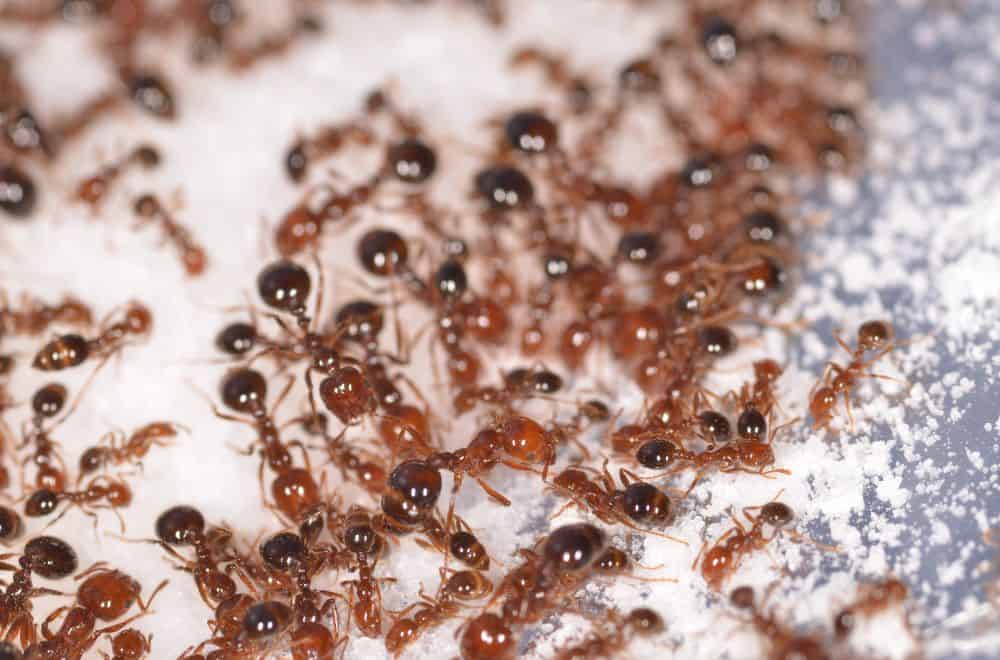
Make a DIY ant killer that interferes with their digestive system after swallowing. This method is highly efficient, but be careful if you have kids and pets. Even though it is a natural boron salt, only 0.18 ounces (5 g) can kill a child when ingested.
Start by mixing a quarter cup of Borax with the same amount of sugar. Then add half a cup of water and stir until dissolved.
Pour the mixture into a shallow bowl placed near the infected pot. The goal is to let ants pick up this sweet mixture, carry it to the nest, and wait while Borax kills the entire colony.
11. Replace the soil and repot plants
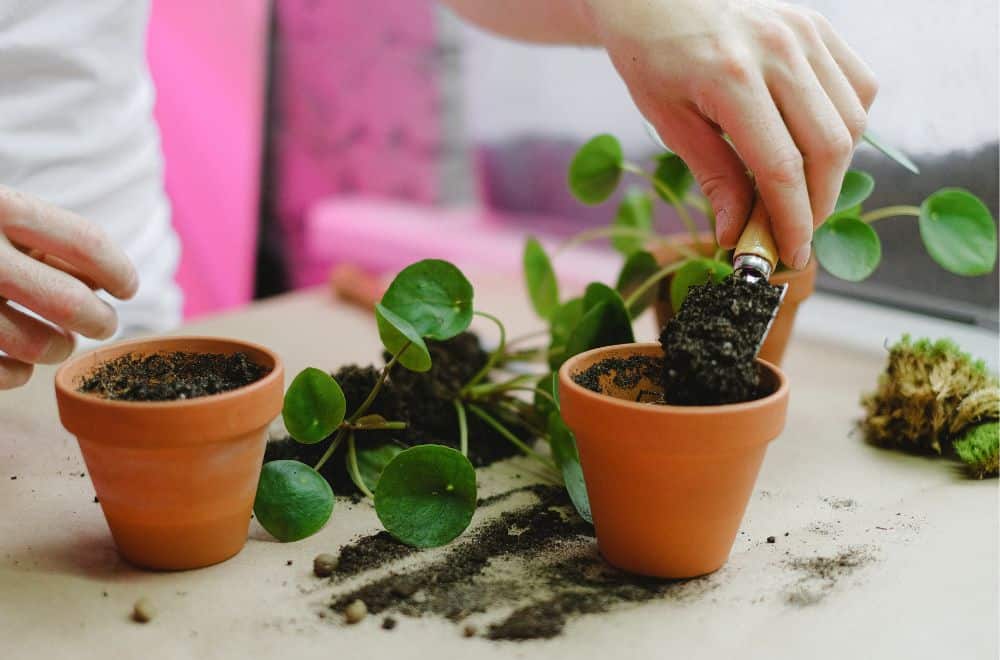
Once ants nest in your potted plants, it is time to replace the soil, remove any ant nests and trails, and discourage others from coming. Remove as much old soil from the roots as possible, place your plant into a new pot, and water it well. Be careful and take care to prevent ants released from old pots from reaching others.
Remember that ants don’t need to nest inside pots unless they have a particular reason. Therefore, always check your plants for fungal infection and apply a layer of organic activated charcoal over the surface after repotting them.
12. Diatomaceous earth
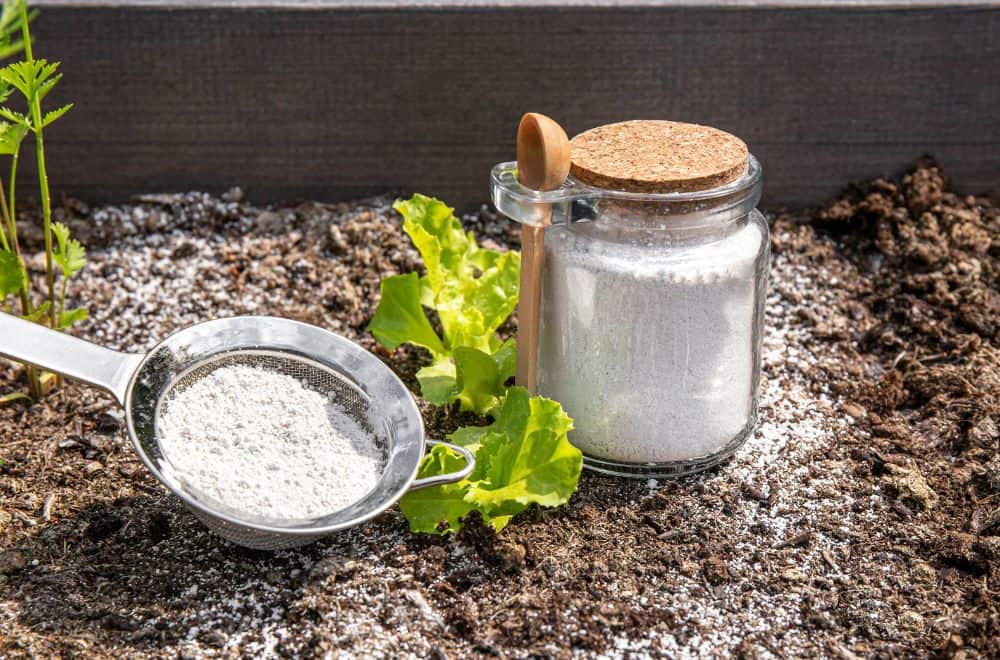
Spreading Diatomaceous earth (diatomite) over the soil in pots around the plant base is an entirely natural way to eliminate ants. This product dehydrates and kills them within a minute or two, while a direct application keeps beneficial insects safe.
Be careful and buy food-grade Diatomaceous earth without harmful health effects to humans and pets. Always add it over dry soil since moisture dilutes it and makes it less effective.
13. The saucer filled with water
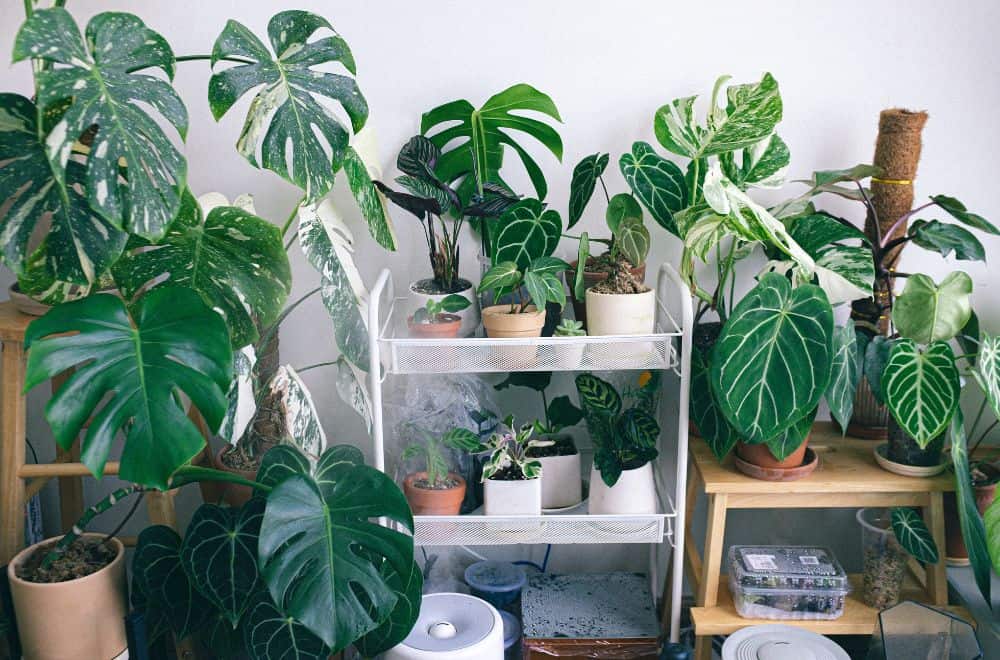
Since ants can’t swim, placing a pot in a sizable saucer full of water will make a liquid moat and prevent ants from entering the pot. Unfortunately, this solution is not perfect for all plants, particularly those that can’t stand too damp soil.
14. Soap solution
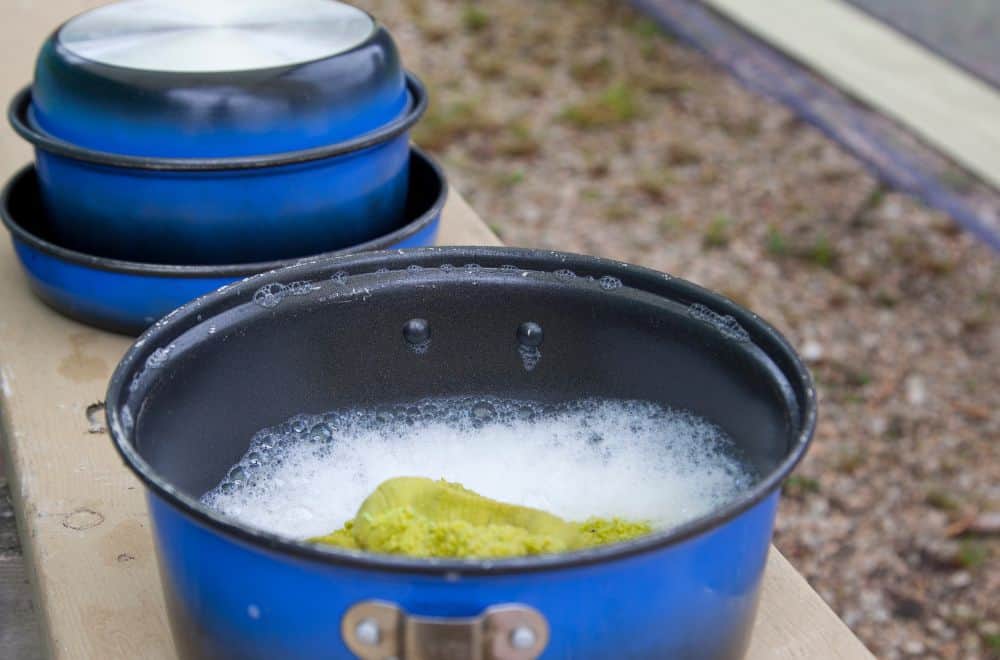
A repellent made of soapy water is a quick and efficient way to eliminate ants. Add a teaspoon of dishwater liquid to 1 pint (0.5 l) of warm water and spray a solution around the potted plants.
Adding a few drops of peppermint oil will make this mix even better. Always spray fresh water over plants the following day to remove soap residues.
15. Dawn soap spray
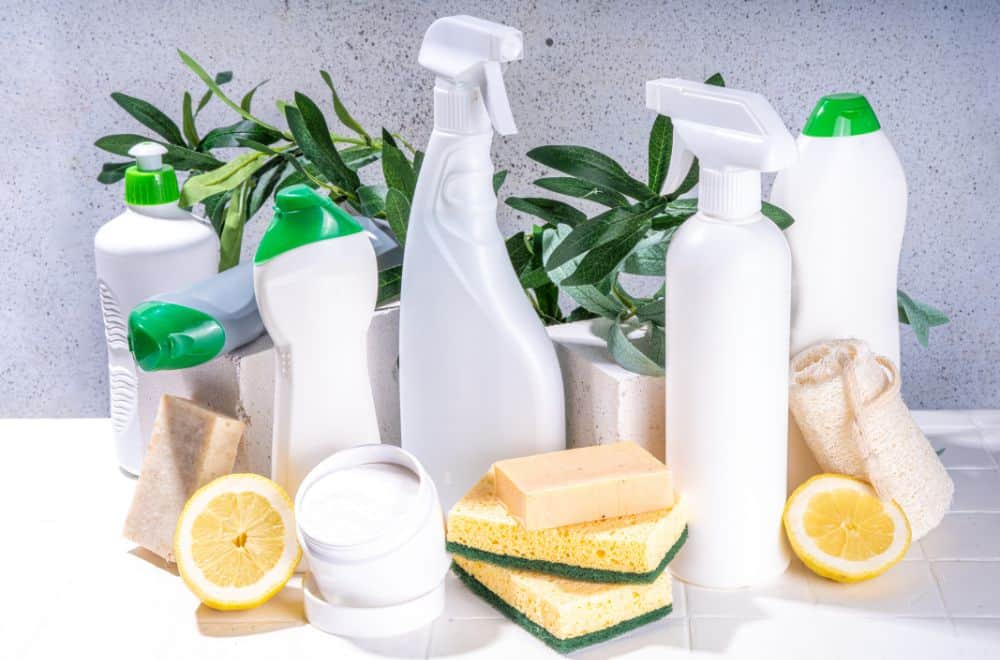
Add two tablespoons of blue Scent Dawn dish soap to 1 gallon (3.8 l) of warm water to make an efficient insecticide spray. Put the mixture into a spray bottle and spray it on the affected plants.
16. Nematodes
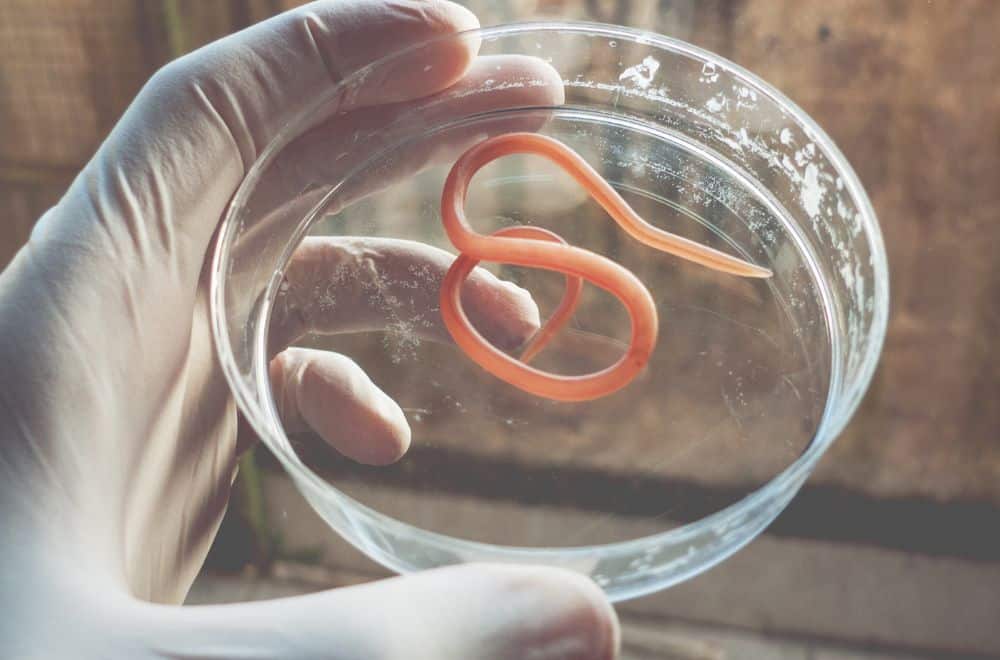
If you keep your plants in bigger containers, you can use beneficial nematodes to get rid of ants since these microscopic multicellular insects kill their larvae. It is not an instant solution and requires long-term planning, making this method more practical for gardens than potted plants.
Commercial ant baits
If you are a fan of instant solutions and have no time to explore natural remedies, you can use commercial ant baits. These products will quickly repel and eliminate ants, making them highly efficient when the infestation is out of control.
Your best options are:
- TERRO Liquid ant killer
- Raid multi-insect killer
- Maggie’s bug spray
- Syngenta Advion ant gel
- Delta dust
- BASF insecticide spray
Insecticides
Applying insecticide spray onto the plant foliage will quickly poison the ants, but you should always use them sparingly. These chemicals pollute soil, weaken plants, and are often toxic to plants and beneficial insects. Additionally, some can harm humans and pets.
Strictly follow the directions and never exceed the prescribed amount. Otherwise, you may end up with an allergic reaction.
Preventative Measures
There are a few measures you can stick to when you want to protect potted plants in your home from ants:
- Use pot feet, stands, and risers
- Always add only necessary organic matter into potting soil and avoid overdoing
- Keep potting mix damp and replace it every couple of years
- Eliminate pests that excrete honeydew
- Apply essential oil next to the pot
Why Potted Plants Attract Ants?
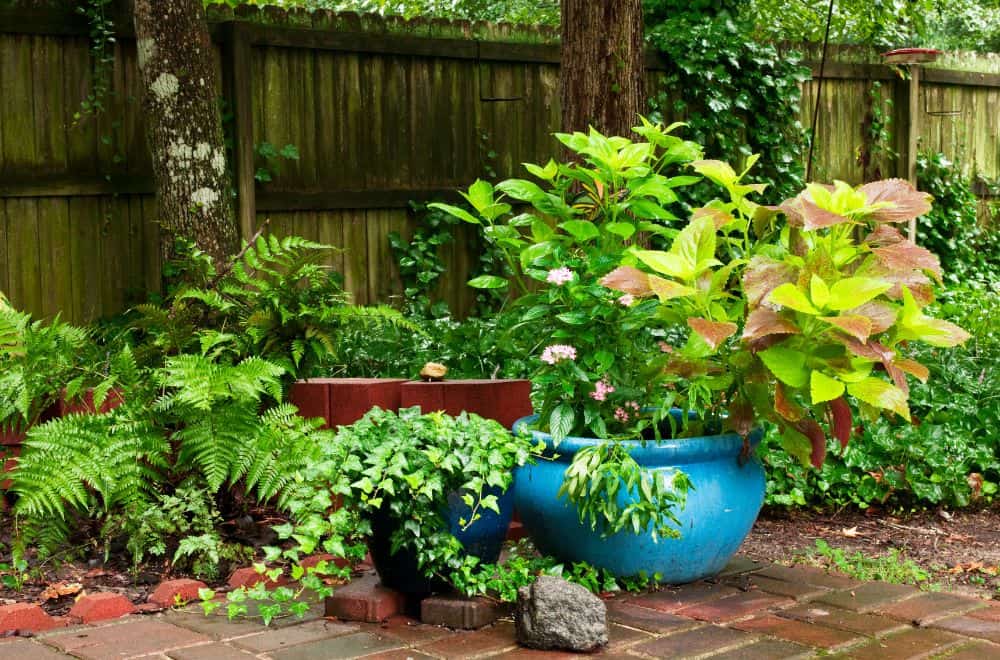
Ants often choose potted plants since they provide appealing conditions for their living and laying eggs. The typical reasons include the following:
- Pots are an excellent organic matter source
- They are a safe shelter
- Ants can build nests in the pot when necessary
- Some plants’ scent is highly attractive to these insects
- Ants enjoy exploring
- Scale insects like Aphids, Whiteflies, and Mealybugs produce honeydew, making infected plants attractive to ants
Are Ants Helpful or Harmful to Plants?
Since ants are part of a functioning ecosystem, you can expect plants to have numerous benefits from these insects, including:
- Ants are pest predators, making them perfect natural plant protectors
- They improve the pollination rate by protecting pollinators from harmful insects
- Ants are beneficial in soil enrichment and aeration
- They eat honeydew, which negatively affects plants by inhibiting photosynthesis and their growth
On the other hand, these insects can damage potted plants by:
- Increasing particular pest populations
- Making tunnels through the soil
- Creating ant hills
- Some species, like Leafcutter ants, can destroy your plants by removing all the foliage
Summary
Even though ants don’t harm potted plants, you should eliminate them for a few reasons. The best option is to apply natural repellents since they deter insects and protect plants at the same time. Using insecticides is the most efficient method, but be careful with them and only use them when necessary.
